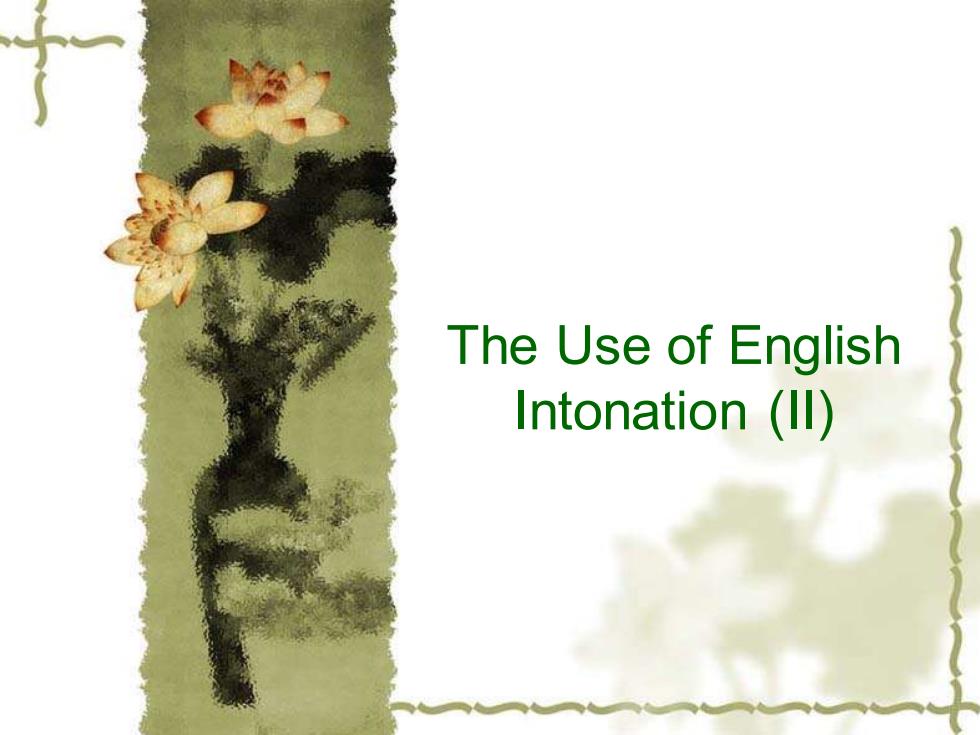
The Use of English Intonation (II)
The Use of English Intonation (II)
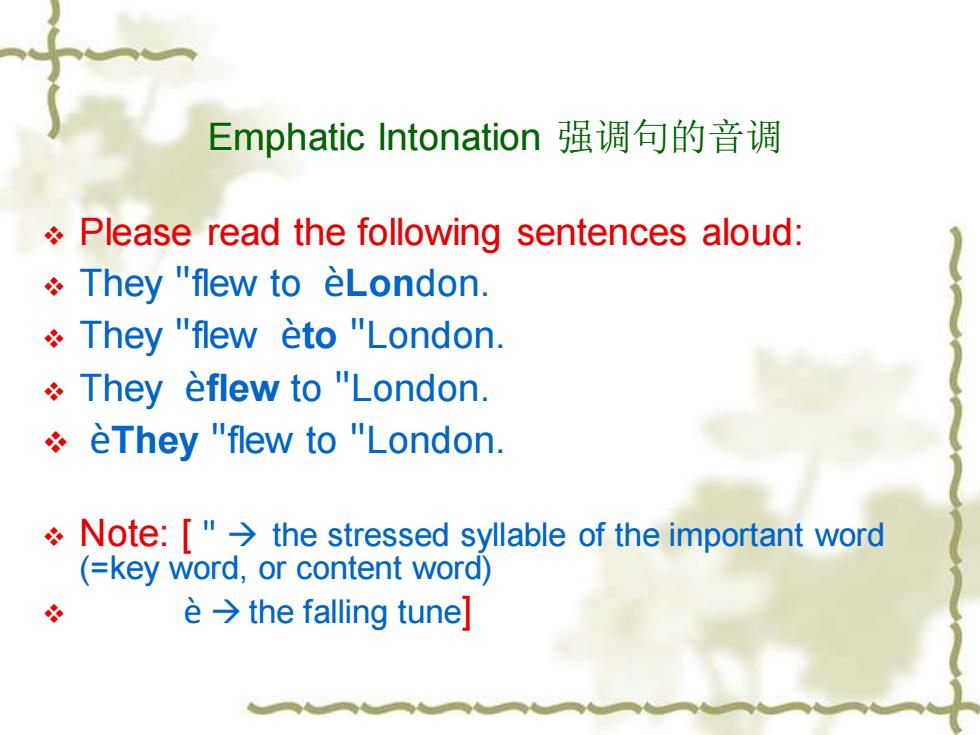
Emphatic Intonation强调句的音调 Please read the following sentences aloud: They "flew to eLondon. They "flew eto "London. They eflew to "London. eThey "flew to "London. 冬 Note:["the stressed syllable of the important word (=key word,or content word) e→the falling tune]
Emphatic Intonation 强调句的音调 ❖ Please read the following sentences aloud: ❖ They "flew to èLondon. ❖ They "flew èto "London. ❖ They èflew to "London. ❖ èThey "flew to "London. ❖ Note: [ " → the stressed syllable of the important word (=key word, or content word) ❖ è → the falling tune]
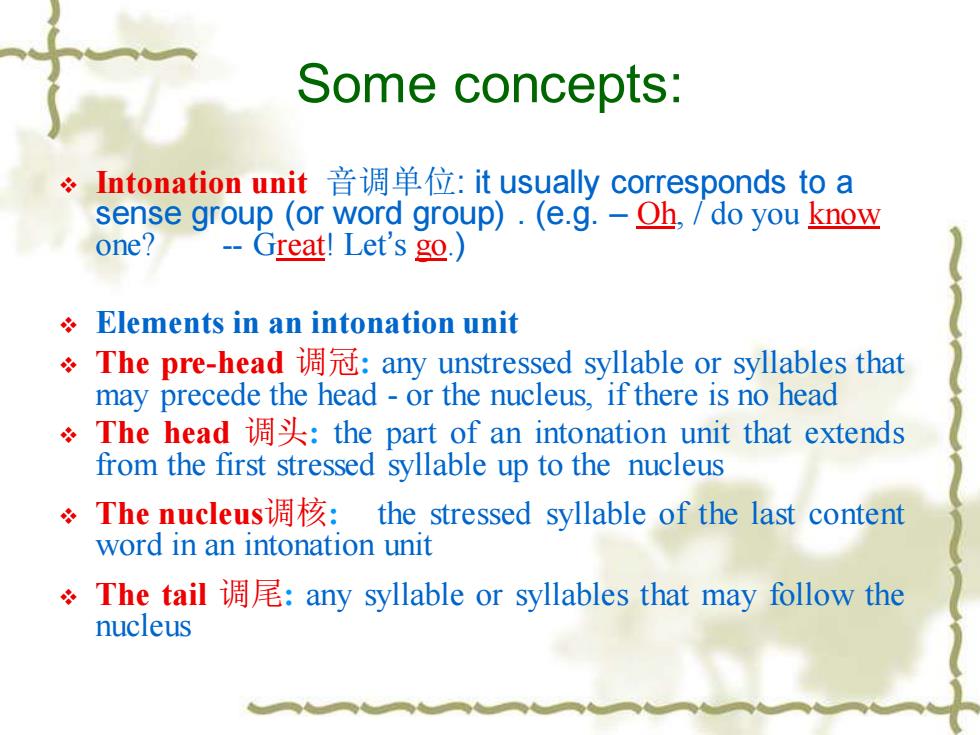
Some concepts: 冬ntonation unit音调单位:it usually corresponds to a sense group (or word group).(e.g.-Oh,do you know one? -Great!Let's go.) Elements in an intonation unit 冬 The pre-head调冠:any unstressed syllable or syllables that may precede the head-or the nucleus,if there is no head The head调头:the part of an intonation unit that extends from the first stressed syllable up to the nucleus The nucleus调核:the stressed syllable of the last content word in an intonation unit ÷The tail调尾:any syllable or syllables that may follow the nucleus
Some concepts: ❖ Intonation unit 音调单位: it usually corresponds to a sense group (or word group) . (e.g. – Oh, / do you know one? - Great! Let’ s go.) ❖ Elements in an intonation unit ❖ The pre-head 调冠: any unstressed syllable or syllables that may precede the head - or the nucleus, if there is no head ❖ The head 调头: the part of an intonation unit that extends from the first stressed syllable up to the nucleus ❖ The nucleus调核: the stressed syllable of the last content word in an intonation unit ❖ The tail 调尾: any syllable or syllables that may follow the nucleus
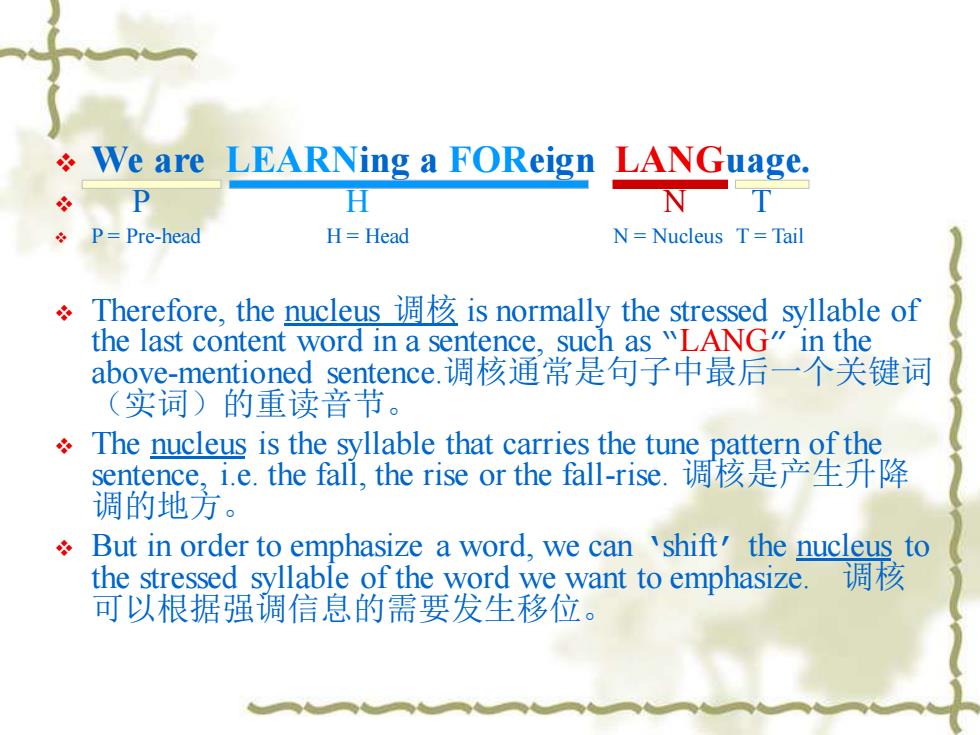
We are LEARNing a FOReign LANGuage. P H ÷P=Pre-head H=Head N=Nucleus T=Tail ÷Therefore,the nucleus週柩is normally the stressed syllable of the last content word in a sentence,such as "LANG"in the above-mentioned sentence.调核通常是句子中最后一个关键词 (实词)的重读音节。 The nucleus is the syllable that carries the tune pattern of the sentence,.i.e.the fall,the rise or the fall-rise.调核是产生升降 调的地方。 But in order to emphasize a word,we can 'shift'the nucleus to the stressed syllable of the word we want to emphasize. 可以根据强调信息的需要发生移位
❖ We are LEARNing a FOReign LANGuage. ❖ P H N T ❖ P = Pre-head H = Head N = Nucleus T = Tail ❖ Therefore, the nucleus 调核 is normally the stressed syllable of the last content word in a sentence, such as “LANG” in the above-mentioned sentence.调核通常是句子中最后一个关键词 (实词)的重读音节。 ❖ The nucleus is the syllable that carries the tune pattern of the sentence, i.e. the fall, the rise or the fall-rise. 调核是产生升降 调的地方。 ❖ But in order to emphasize a word, we can ‘shift’ the nucleus to the stressed syllable of the word we want to emphasize. 调核 可以根据强调信息的需要发生移位
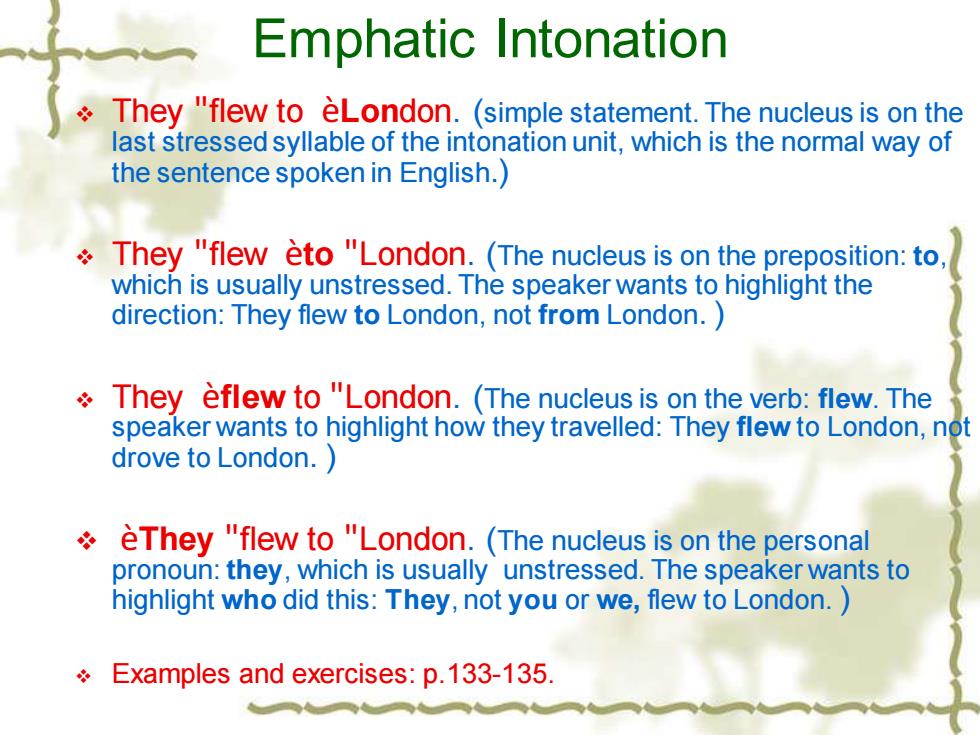
Emphatic Intonation They "flew to eLondon.(simple statement.The nucleus is on the last stressed syllable of the intonation unit,which is the normal way of the sentence spoken in English.) They "flew eto "London.(The nucleus is on the preposition:to which is usually unstressed.The speaker wants to highlight the direction:They flew to London,not from London. They eflew to "London.(The nucleus is on the verb:flew.The speaker wants to highlight how they travelled:They flew to London,not drove to London. eThey "flew to "London.(The nucleus is on the personal pronoun:they,which is usually unstressed.The speaker wants to highlight who did this:They,not you or we,flew to London. Examples and exercises:p.133-135
❖ They "flew to èLondon. (simple statement. The nucleus is on the last stressed syllable of the intonation unit, which is the normal way of the sentence spoken in English.) ❖ They "flew èto "London. (The nucleus is on the preposition: to, which is usually unstressed. The speaker wants to highlight the direction: They flew to London, not from London. ) ❖ They èflew to "London. (The nucleus is on the verb: flew. The speaker wants to highlight how they travelled: They flew to London, not drove to London. ) ❖ èThey "flew to "London. (The nucleus is on the personal pronoun: they, which is usually unstressed. The speaker wants to highlight who did this: They, not you or we, flew to London. ) ❖ Examples and exercises: p.133-135. Emphatic Intonation